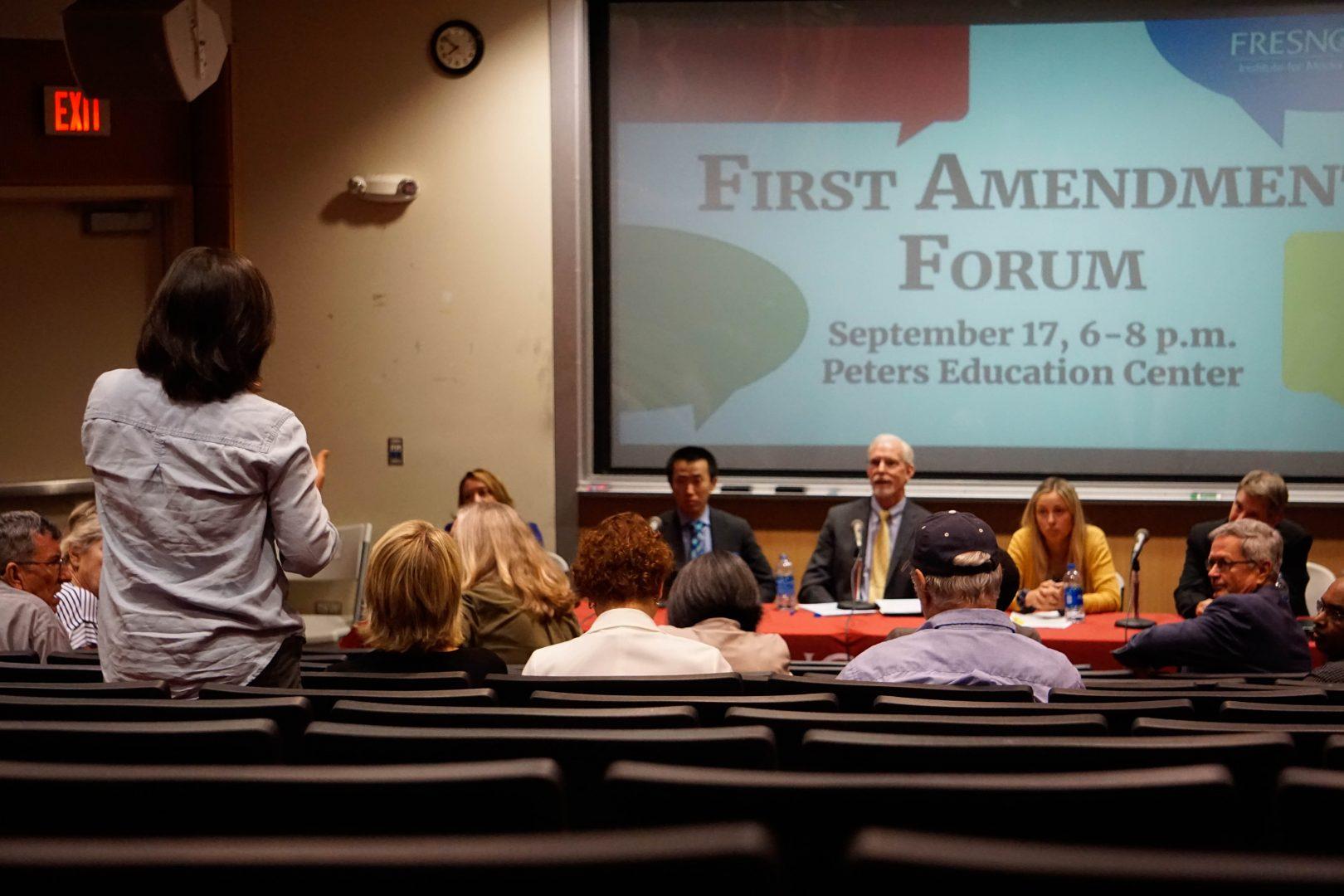The Institute for Media and Public Trust presented a First Amendment forum on Monday, its first-ever event Monday evening in the Peter’s Education Building.
The questions presented by Jim Boren, former executive editor of The Fresno Bee and executive director of the institute, delved into free speech issues on university campuses across the nation. The panel also discussed the First Amendment, tenure, academic freedom and collective bargaining effects during controversies.
The forum’s five panelists included Diane Blair, president of the Fresno State chapter of the California Faculty Association, Wen Fa, attorney with the Pacific Legal Foundation; Michael E. Smith, founding partner of the Lozano Smith law firm; Demi Wack, Fresno State Associated Students, Inc. president; Thomas Holyoke, chair of the Fresno State Academic Senate.
The institute — recently supported by former California governor Arnold Schwarzenegger — was established in June by Fresno State President Joseph Castro to combat the spread of fake news and to improve media literacy among news consumers.
“As a newspaper editor over a long period of time, I noticed that the trust issue had been eluting between news consumers and media,” said Boren during the event.
The College of Arts and Humanities and Castro worked hand-in-hand to launch the institute that is currently housed in the Media, Communication and Journalism Department. Its key goal is to bridge the gap between media and consumers through community outreach events, and providing strategies to identify fake news.
But in honor of Constitution Day, the forum delved into the First Amendment and free speech topics like hate speech to tenure.
Wack, ASI president, said that if one person has the right to speak, then everyone should.
One question arose during the event: how free are people to speak out?
That is very much dependent on the individual’s profession, or whom they associate themselves with — there can be great limitations on what they can and cannot say. The First Amendment protects individuals from the government’s limitations, not from the regulations by private entities. A student on a public university campus may have loose freedom on speech, whereas a students on a private campus may not enjoy the same liberties.
And, yes, this is all legal.
Fa, who represents clients suing the government for violating the First Amendment rights, said that just because someone is a professor does not mean they should only speak about their profession. One example he set is that although he’s an attorney, he also wants to tweet about Fantasy Football, and not just about legal issues.
Then, tenure came up as a topic. Tenure does not happen automatically, according to Blair, the CFA representative. There are many steps a professor has to undergo before they can achieve tenure. The measures include: demonstrate competency, research in their discipline, creative activities and service among other criteria.
Blair added that more than just a benefit, tenure is a service to the public interest because it seeks the advancement of knowledge and understanding of a given discipline.
It was a thoughtful conversation, to which each participant on the panel was given the opportunity to express their opinion in their given fields.
“They [people] tend to talk past each other,” said Boren. The goal of the event and those like it is to get people to talk to each other, he said, and encourage people to find common ground.
“We know that it isn’t going to happen in a day it’s going to be a long effort. You have to start moving forward,” said Boren.




